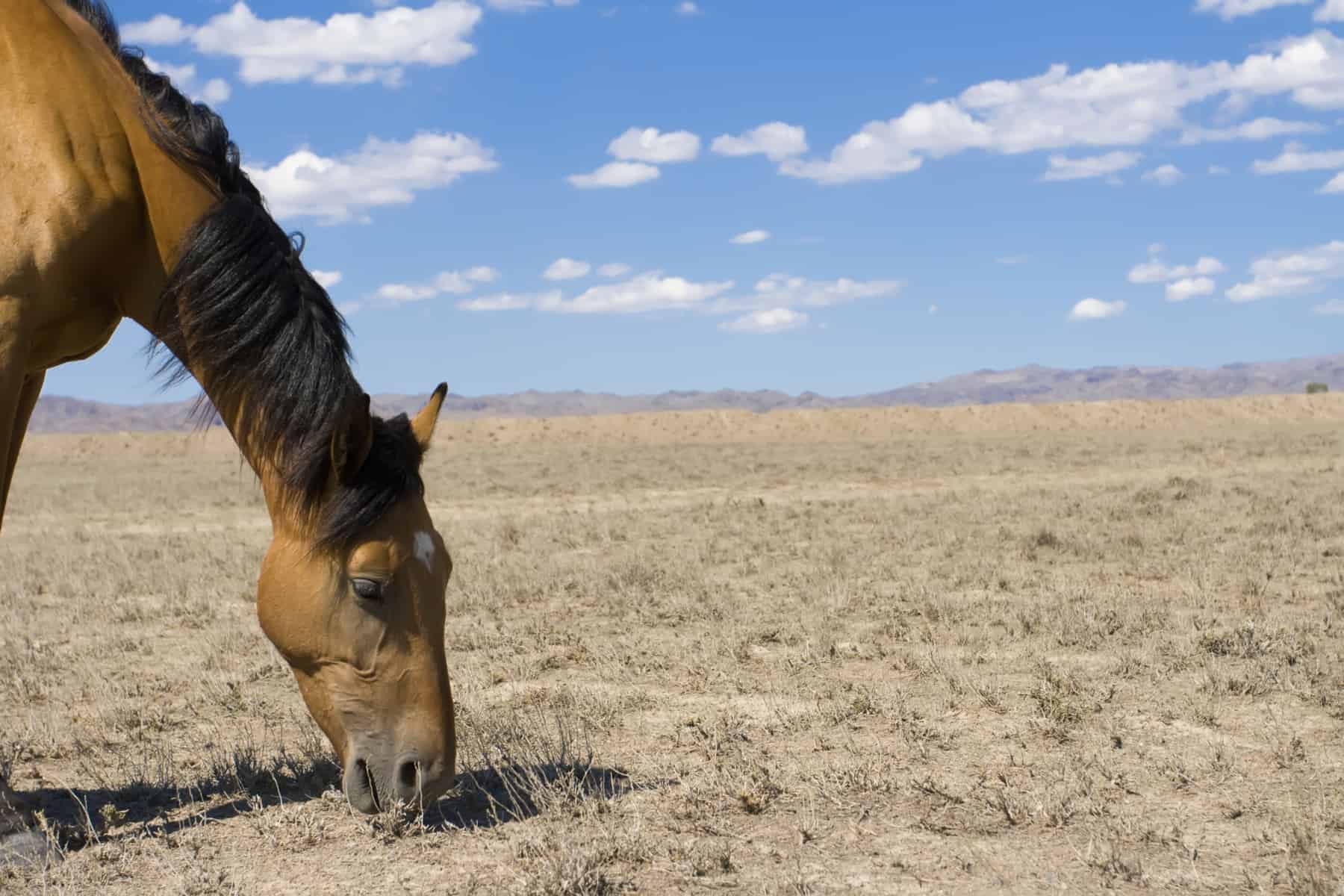Pasture Management 101: Drought, Excess Rain, and Erosion

For example, during times of drought, grasses might become dormant or die altogether, allowing weeds (sometimes toxic) to take their place. Overgrazing can make this even worse.
“Owners should be cautious if horses are hungry as they may increase consumption of weeds or toxic plants and thus alternative safe forage sources should be provided in those instances,” said Jennie Ivey, MS, PhD, assistant professor and extension equine specialist at the University of Tennessee Institute of Agriculture.
During times of drought, manage horses to reduce grazing time or provided additional forage to reduce grazing pressure
Create a free account with TheHorse.com to view this content.
TheHorse.com is home to thousands of free articles about horse health care. In order to access some of our exclusive free content, you must be signed into TheHorse.com.
Start your free account today!
Already have an account?
and continue reading.
Written by:
Hope Ellis-Ashburn, MS
Related Articles
Stay on top of the most recent Horse Health news with















